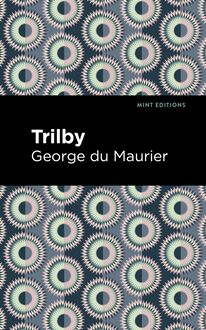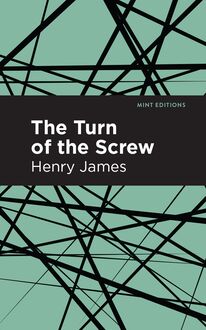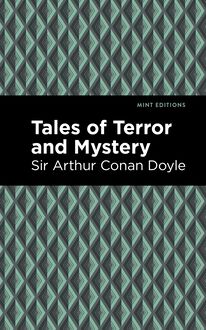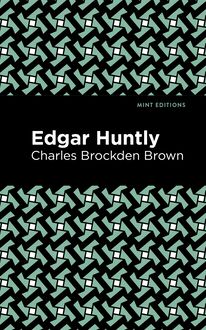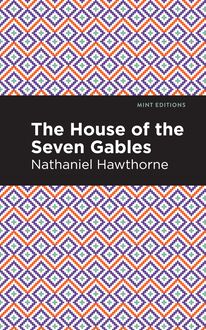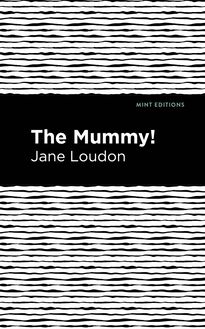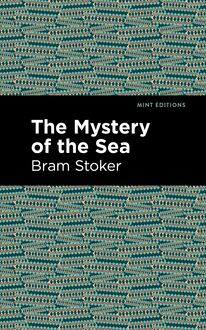-
 Univers
Univers
-
 Ebooks
Ebooks
-
 Livres audio
Livres audio
-
 Presse
Presse
-
 Podcasts
Podcasts
-
 BD
BD
-
 Documents
Documents
-
- Cours
- Révisions
- Ressources pédagogiques
- Sciences de l’éducation
- Manuels scolaires
- Langues
- Travaux de classe
- Annales de BEP
- Etudes supérieures
- Maternelle et primaire
- Fiches de lecture
- Orientation scolaire
- Méthodologie
- Corrigés de devoir
- Annales d’examens et concours
- Annales du bac
- Annales du brevet
- Rapports de stage
La lecture à portée de main
Vous pourrez modifier la taille du texte de cet ouvrage
Découvre YouScribe en t'inscrivant gratuitement
Je m'inscrisDécouvre YouScribe en t'inscrivant gratuitement
Je m'inscrisEn savoir plus
Vous pourrez modifier la taille du texte de cet ouvrage
En savoir plus

Description
Edgar Huntly, or, Memoirs of a Sleepwalker (1799) is a novel by American author Charles Brockden Brown. Combining the suspenseful style of Gothic fiction with such thematic interests as consciousness, morality, and truth, Brown’s novel shows the profound influence of European literature on his aesthetic while grounding the narrative in a distinctly American setting.
Following the murder of his friend Waldegrave, the young Edgar Huntly devotes himself to uncovering the mystery of his death. While walking at night near the scene of the crime, Huntly sees a servant from a nearby farm named Clithero digging in the ground beneath a willow. Initially horrified at the man’s strange behavior and disheveled appearance, Huntly soon becomes suspicious and decides to question Clithero. After realizing that the man is a sleepwalker, he confronts Clithero, who denies murdering Waldegrave but admits his guilt in murdering a man in his native Ireland. Disappointed but eager as ever to find his friend’s killer, Edgar continues his search. When he wakes up in a dark cave, completely disoriented and on the brink of starvation, Edgar must fend off the merciless local wildlife and escape captivity by the Lenni Lenape tribe in order to survive. Charles Brockden Brown’s Edgar Huntly, or, Memoirs of a Sleepwalker is a harrowing work of mystery, horror, revenge, and survival which not only serves as a fine example of Gothic fiction, but as a detailed psychological portrait of settler colonial life.
This early masterpiece of American literature, among Brown’s other works, would inspire the novels of James Fenimore Cooper, Mary Shelley’s Frankenstein, and countless other authors whose works employ elements of mystery, suspense, and horror. Brown’s novel is perfect for readers looking for a terrifying tale with philosophical and psychological depth, as well as for those interested in the early days of American fiction.
With a beautifully designed cover and professionally typeset manuscript, this edition of Charles Brockden Brown’s Edgar Huntly, or, Memoirs of a Sleepwalker is a classic of American literature reimagined for modern readers.
Sujets
Informations
| Publié par | Mint Editions |
| Date de parution | 01 décembre 2020 |
| Nombre de lectures | 0 |
| EAN13 | 9781513273655 |
| Langue | English |
| Poids de l'ouvrage | 1 Mo |
Informations légales : prix de location à la page 0,0500€. Cette information est donnée uniquement à titre indicatif conformément à la législation en vigueur.
Extrait
Edgar Huntly
Charles Brockden Brown
Edgar Huntly was first published in 1799.
This edition published by Mint Editions 2020.
ISBN 9781513268651 | E-ISBN 9781513273655
Published by Mint Editions®
minteditionbooks.com
Publishing Director: Jennifer Newens
Design & Production: Rachel Lopez Metzger
Typesetting: Westchester Publishing Services
C ONTENTS Chapter 1 Chapter 2 Chapter 3 Chapter 4 Chapter 5 Chapter 6 Chapter 7 Chapter 8 Chapter 9 Chapter 10 Chapter 11 Chapter 12 Chapter 13 Chapter 14 Chapter 15 Chapter 16 Chapter 17 Chapter 18 Chapter 19 Chapter 20 Chapter 21 Chapter 22 Chapter 23 Chapter 24 Chapter 25 Chapter 26 Chapter 27
Chapter 1
I sit down, my friend, to comply with thy request. At length does the impetuosity of my fears, the transports of my wonder, permit me to recollect my promise and perform it. At length am I somewhat delivered from suspense and from tremors. At length the drama is brought to an imperfect close, and the series of events that absorbed my faculties, that hurried away my attention, has terminated in repose.
Till now, to hold a steadfast pen was impossible; to disengage my senses from the scene that was passing or approaching; to forbear to grasp at futurity; to suffer so much thought to wander from the purpose which engrossed my fears and my hopes, could not be.
Yet am I sure that even now my perturbations are sufficiently stilled for an employment like this? That the incidents I am going to relate can be recalled and arranged without indistinctness and confusion? That emotions will not be reawakened by my narrative, incompatible with order and coherence? Yet when I shall be better qualified for this task I know not. Time may take away these headlong energies, and give me back my ancient sobriety; but this change will only be effected by weakening my remembrance of these events. In proportion as I gain power over words, shall I lose dominion over sentiments. In proportion as my tale is deliberate and slow, the incidents and motives which it is designed to exhibit will be imperfectly revived and obscurely portrayed.
Oh, why art thou away at a time like this. Wert thou present, the office to which my pen is so inadequate would easily be executed by my tongue. Accents can scarcely be too rapid; or that which words should fail to convey, my looks and gestures would suffice to communicate. But I know thy coming is impossible. To leave this spot is equally beyond my power. To keep thee in ignorance of what has happened would justly offend thee. There is no method of informing thee except by letter, and this method must I, therefore, adopt.
How short is the period that has elapsed since thou and I parted, and yet how full of tumult and dismay has been my soul during that period! What light has burst upon my ignorance of myself and of mankind! How sudden and enormous the transition from uncertainty to knowledge!
But let me recall my thoughts; let me struggle for so much composure as will permit my pen to trace intelligible characters. Let me place in order the incidents that are to compose my tale. I need not call on thee to listen. The fate of Waldegrave was as fertile of torment to thee as to me. His bloody and mysterious catastrophe equally awakened thy grief, thy revenge, and thy curiosity. Thou wilt catch from my story every horror and every sympathy which it paints. Thou wilt shudder with my foreboding and dissolve with my tears. As the sister of my friend, and as one who honours me with her affection, thou wilt share in all my tasks and all my dangers.
You need not be reminded with what reluctance I left you. To reach this place by evening was impossible, unless I had set out early in the morning; but your society was too precious not to be enjoyed to the last moment. It was indispensable to be here on Tuesday, but my duty required no more than that I should arrive by sunrise on that day. To travel during the night was productive of no formidable inconvenience. The air was likely to be frosty and sharp, but these would not incommode one who walked with speed. A nocturnal journey in districts so romantic and wild as these, through which lay my road, was more congenial to my temper than a noonday ramble.
By nightfall I was within ten miles of my uncle’s house. As the darkness increased, and I advanced on my way, my sensations sunk into melancholy. The scene and the time reminded me of the friend whom I had lost. I recalled his features, and accents, and gestures, and mused with unutterable feelings on the circumstances of his death.
My recollections once more plunged me into anguish and perplexity. Once more I asked, Who was his assassin? By what motives could he be impelled to a deed like this? Waldegrave was pure from all offence. His piety was rapturous. His benevolence was a stranger to remissness or torpor. All who came within the sphere of his influence experienced and acknowledged his benign activity. His friends were few, because his habits were timid and reserved; but the existence of an enemy was impossible.
I recalled the incidents of our last interview, my importunities that he should postpone his ill-omened journey till the morning, his inexplicable obstinacy, his resolution to set out on foot during a dark and tempestuous night, and the horrible disaster that befell him.
The first intimation I received of this misfortune, the insanity of vengeance and grief into which I was hurried, my fruitless searches for the author of this guilt, my midnight wanderings and reveries beneath the shade of that fatal elm, were revived and reacted. I heard the discharge of the pistol, I witnessed the alarm of Inglefield, I heard his calls to his servants, and saw them issue forth with lights and hasten to the spot whence the sound had seemed to proceed. I beheld my friend, stretched upon the earth, ghastly with a mortal wound, alone, with no traces of the slayer visible, no tokens by which his place of refuge might be sought, the motives of his enmity or his instruments of mischief might be detected.
I hung over the dying youth, whose insensibility forbade him to recognise his friend, or unfold the cause of his destruction. I accompanied his remains to the grave; I tended the sacred spot where he lay; I once more exercised my penetration and my zeal in pursuit of his assassin. Once more my meditations and exertions were doomed to be disappointed.
I need not remind thee of what is past. Time and reason seemed to have dissolved the spell which made me deaf to the dictates of duty and discretion. Remembrances had ceased to agonize, to urge me to headlong acts and foster sanguinary purposes. The gloom was half dispersed, and a radiance had succeeded sweeter than my former joys.
Now, by some unseen concurrence of reflections, my thoughts reverted into some degree of bitterness. Methought that to ascertain the hand who killed my friend was not impossible, and to punish the crime was just. That to forbear inquiry or withhold punishment was to violate my duty to my God and to mankind. The impulse was gradually awakened that bade me once more to seek the elm; once more to explore the ground; to scrutinize its trunk. What could I expect to find? Had it not been a hundred times examined? Had I not extended my search to the neighbouring groves and precipices? Had I not pored upon the brooks, and pried into the pits and hollows, that were adjacent to the scene of blood?
Lately I had viewed this conduct with shame and regret; but in the present state of my mind it assumed the appearance of conformity with prudence, and I felt myself irresistibly prompted to repeat my search. Some time had elapsed since my departure from this district,—time enough for momentous changes to occur. Expedients that formerly were useless might now lead instantaneously to the end which I sought. The tree which had formerly been shunned by the criminal might, in the absence of the avenger of blood, be incautiously approached. Thoughtless or fearless of my return, it was possible that he might, at this moment, be detected hovering near the scene of his offences.
Nothing can be pleaded in extenuation of this relapse into folly. My return, after an absence of some duration, into the scene of these transactions and sufferings, the time of night, the glimmering of the stars, the obscurity in which external objects were wrapped, and which, consequently, did not draw my attention from the images of fancy, may in some degree account for the revival of those sentiments and resolutions which immediately succeeded the death of Waldegrave, and which, during my visit to you, had been suspended.
You know the situation of the elm, in the midst of a private road, on the verge of Norwalk, near the habitation of Inglefield, but three miles from my uncle’s house. It was now my intention to visit it. The road in which I was travelling led a different way. It was requisite to leave it, therefore, and make a circuit through meadows and over steeps. My journey would, by these means, be considerably prolonged; but on that head I was indifferent, or rather, considering how far the night had already advanced, it was desirable not to reach home till the dawn.
I proceeded in this new direction with speed. Time, however, was allowed for my impetuosities to subside, and for sober thoughts to take place. Still I persisted in this path. To linger a few moments in this shade, to ponder on objects connected with events so momentous to my happiness, promised me a mournful satisfaction. I was familiar with the way, though trackless and intricate, and I climbed the steeps, crept through the brambles, leaped the rivulets and fences with undeviating aim, till at length I reached the craggy and obscure path which led to Inglefield’s house.
In a short time, I descried through the dusk the widespread branches of the elm. This tree, however faintly seen, cannot be mistaken for another. The remarkable bulk and shape of
-
 Univers
Univers
-
 Ebooks
Ebooks
-
 Livres audio
Livres audio
-
 Presse
Presse
-
 Podcasts
Podcasts
-
 BD
BD
-
 Documents
Documents
-
Jeunesse
-
Littérature
-
Ressources professionnelles
-
Santé et bien-être
-
Savoirs
-
Education
-
Loisirs et hobbies
-
Art, musique et cinéma
-
Actualité et débat de société
-
Jeunesse
-
Littérature
-
Ressources professionnelles
-
Santé et bien-être
-
Savoirs
-
Education
-
Loisirs et hobbies
-
Art, musique et cinéma
-
Actualité et débat de société
-
Actualités
-
Lifestyle
-
Presse jeunesse
-
Presse professionnelle
-
Pratique
-
Presse sportive
-
Presse internationale
-
Culture & Médias
-
Action et Aventures
-
Science-fiction et Fantasy
-
Société
-
Jeunesse
-
Littérature
-
Ressources professionnelles
-
Santé et bien-être
-
Savoirs
-
Education
-
Loisirs et hobbies
-
Art, musique et cinéma
-
Actualité et débat de société
- Cours
- Révisions
- Ressources pédagogiques
- Sciences de l’éducation
- Manuels scolaires
- Langues
- Travaux de classe
- Annales de BEP
- Etudes supérieures
- Maternelle et primaire
- Fiches de lecture
- Orientation scolaire
- Méthodologie
- Corrigés de devoir
- Annales d’examens et concours
- Annales du bac
- Annales du brevet
- Rapports de stage




